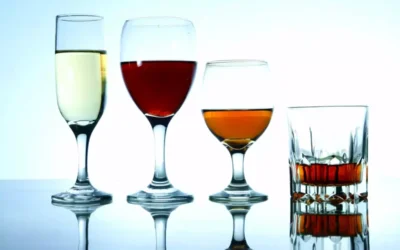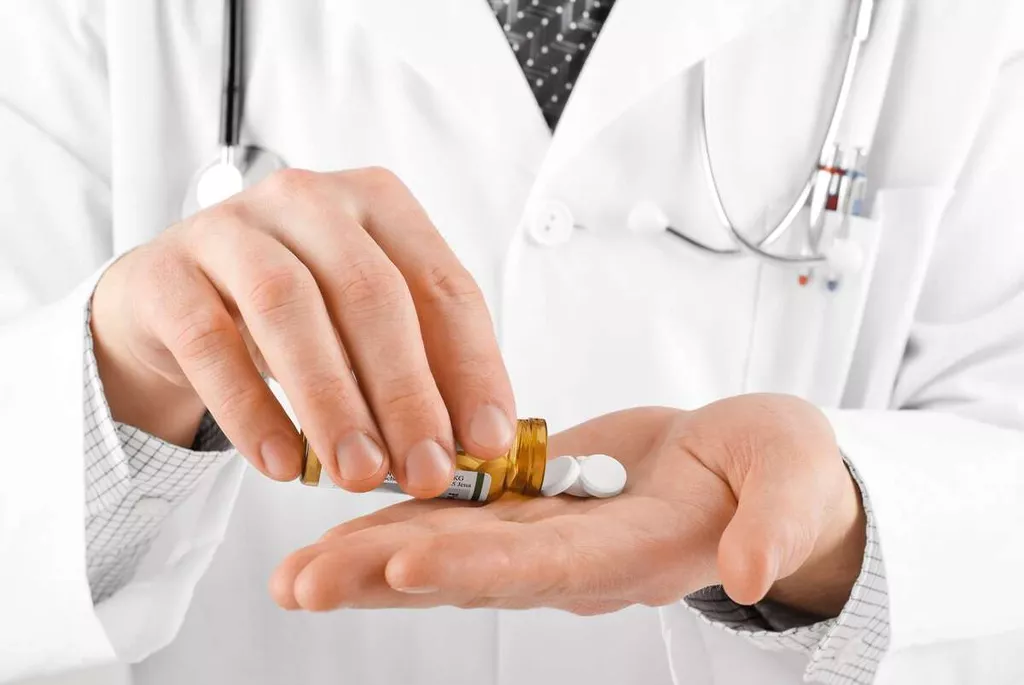Others need medical supervision in order to withdraw from alcohol safely and comfortably. Which option is best for you depends on how much you’ve been drinking, how long you’ve had a problem, the stability of your living situation, and other health issues you may have. However, you must not feel like a failure if you find it challenging to stay sober. It is common to experience setbacks during addiction recovery. Plan to provide support, and receive the support, of peers in recovery with a sober celebration.
- For guidelines in establishing your personal goals, a good place to start is here.
- In 2014, over 20 million adults in the United States had a substance use disorder.
- Many youth groups, colleges and community centers now offer sober holiday celebrations as a way for students and others to avoid binge drinking.
- Many loved ones find themselves disappointed by a recovering addict and the progress that they’ve made, or haven’t made.
People new to recovery can find themselves approaching their new diet, exercise program, job, and even participation in support groups with a compulsion that echoes addiction. One common mistake for those who are new to alcohol and drug recovery is substituting a new compulsive behavior for their old one. A mental health professional can help you cope with some of the challenges you’ll face on your path to sobriety.
Care For Your Mental Health
You should also find ways to cope if you get thrown off your schedule. You can reach out to your family, join rehab, meditate, or talk to a mental health professional. However, remember the quality of these relationships matters. You must cut off those relationships which are not encouraging your sobriety in any way. Delete their contacts from your phone, block them, and avoid meeting them. You should not feel guilty for leaving the relationships that fail to support your recovery.
However, stressful family dynamics lead to drug or alcohol addiction in some cases. If so, your family must enroll themselves in family therapy. They should ensure that they are not enabling your addiction in any way. Avoid keeping alcohol or drugs in the home and abstain from using alcohol and drugs yourself. If you do drink alcohol, make sure to not do so in the presence of your loved one in recovery. If you have prescription medications keep them locked up and out of sight of your loved one in recovery. Help them avoid social situations where there is a risk of relapse or support them by going with them to help keep them accountable.
It can be managed, and it can be treated, but you need to constantly work at it. When you were using drugs and alcohol, you likely spent most of your time seeking, using, or recovering from your substance of choice. And, in turn, you likely put activities you loved one the backburner. Now that you are in recovery, you have more time to do things that matter to you—things that you enjoy. This might mean playing a sport, starting a collection, getting back into art or music, or hitting the trails. Think about what you enjoy most and be sure to incorporate that into your recovery plan. You will have more meaningful ways to spend your time.
Get Support
And you don’t have to wait until you hit rock bottom; you can make a change at any time. Whether you want to quit drinking altogether or cut down to healthier levels, these guidelines can help you get started on the road to recovery today. Family stress can contribute to a drug or alcohol relapse, and/or exacerbate underlying mental health issues such as depression or anxiety. Do your part to develop healthy communication and open dialogue in order to help facilitate constructive support. Try to spend meaningful and positive time together and try to stay away from unneeded or unwanted topics of discussion.
Know that addiction is not a matter of willpower, nor is it a moral failing. If you have been suffering from alcohol use disorder or substance use disorder, you may have encountered financial problems. Developing and pursuing a variety of goals can help you thrive as you start embracing life substance-free.

If gyms aren’t for you, there are many other ways you can get your body moving so you can still get good cardio. Volunteering to walk stray dogs housed at your local animal shelter doubles as a healing experience. If you love to dance, join a dance class and learn to move your body in ways that bring you joy.
Practice Healthy Living
If you, a family member, or another loved one have relapsed after rehab and need additional support, call our treatment center to discover your options today. Here at Bedrock Recovery Center, we offer a number of resources and options for people who relapse after completing a drug or alcohol rehab program.
Through counseling and other behavioral modification, we can actually, in some cases, change the brain physically. alcohol recovery tips By changing our environment, starting a new job, new hobbies and friends, all will alter our brain in some way.
Explore the many benefits of this approach to your mental health care. Those who are in recovery should be aware of the healthy and sober ways to show others you still like to have fun and let loose . Approaching recovery with fun and humor can counter the feelings of guilt and shame that often feel overwhelming in early recovery. We believe in providing our clients with an environment which addresses each individual’s unique physical, emotional, and social needs, while adapting to their changes as they happen.
- A multi-year study of people with addiction showed that only about a third of recovering individuals who had been sober for less than a year remained abstinent.
- No matter your situation or how long you’ve been out of treatment, help is available.
- It can cause changes to your emotional state, making you feel numb to your feelings or oversensitive.
- Addiction relapse can be viewed negatively by your friends, family, and even yourself, even though it’s a common symptom of addiction.
- Decide what you’ll say if someone asks why you’re sober.
They will often need time to adjust to life outside of treatment. Your job is to foster and promote a supportive and comfortable environment for he or she to adapt. Dr. Scot Thomas received his medical degree from the University of California, San Diego School of Medicine. In his post-graduate clinical work, Dr. Thomas later applied the tenets he learned to help guide his therapeutic approach with many patients in need of substance treatment. Severe substance use disorder can put a strain on or deplete people’s finances.
Take Control Of Your Life
Try to stay right where you are and let the changes develop naturally until you are ready to make bigger decisions and changes. Here, we explore this relationship and how Dr. Goldenberg can help.
Learn more about how to be featured in a paid listing. All of the information on this page has been reviewed and verified by a certified addiction professional. Consult with other friends and family to see if they share your concerns. ×At American Addiction Centers, we strive to provide the most up-to-date and accurate medical information on the web so our readers can make informed decisions about their healthcare.

Allow the person to learn how to gracefully reject tempting offers by themselves. And let them develop the ability to speak about their problems with substance use without shame. Your role in their support circle is to help them if they slip. It’s also to continue giving them love and encouragement. Know that you can give recovery support without enabling their addictions.
Treatment Programs
Submit your number and receive a free call today from a treatment provider. Before leaving rehab, talk to your treatment provider about community-based recovery options. This is also a great time to start developing your long-term recovery plan and addressing any concerns that you may have about life after rehab. Life after alcohol rehab can seem like a maze with no end in sight. No matter your situation or how long you’ve been out of treatment, help is available. Treatment providers are available to help and support sobriety.
If you recently had surgery or an injury, your doctor will be careful with the pain medication they give you, because some of those drugs can make you more likely to relapse. Ask your doctor about nonmedical ways to manage your pain, like massage or acupuncture. Have some sober friends you can invite as your plus-one to a social event like a party or wedding. And stay in touch with your sponsor and call them if you’re feeling anxious or uncomfortable.
Remaining alcohol-free for six months after rehab is a huge milestone. While you may have had a mix of good and difficult days, you will really begin to see the progress you’ve made. Realizing how far you’ve come will re-energize and motivate you to stick with your recovery plan. For those seeking addiction treatment for themselves or a loved one, the MentalHelp.net helpline is a private and convenient solution. You might decide to use both a therapist and a support group in your recovery efforts.
There are likely many things in their past that causes feelings of shame and guilt. Make no mistake about it, financial problems and problems finding and keeping employment are some of the major triggers for relapse. It’s important that you take the steps necessary to get your finances in order. You may also have family members, friends, or even employers who have been enabling https://ecosoberhouse.com/ you without even knowing it. Research shows that if you maintain these types of relationships, your chances of relapsing are greater. Now that you are sober, you may have discovered that your past relationships were not only unhealthy but downright toxic. Yours truly recovered from an Ecstasy addiction over 10 years ago, and yours truly hasn’t touched the stuff since.
OTR believes in setting our clients up for success during detox and recovery programs by helping people build skills that they can put into practice in early sobriety. With a bit of sobriety time under your belt, you have probably found that there is a lot to be said for quiet nights at home watching Netflix after a hard day’s work. You may have discovered that spending time in nature again rejuvenates and grounds you. And spending quality time with family, healthy friends, and your pet ferret Fernando brings you a feeling of peace and comfort you had long since forgotten. Relapse starts in your emotions and mind way before you take a drink or drug.
Partial hospitalizationis for people who require ongoing medical monitoring but have a stable living situation. These treatment programs usually meet at the hospital for 3-5 days a week, 4-6 hours per day. You can enroll in therapy as it will give you a platform to talk about issues you might not usually want to discuss.
What Is Alcoholism?
This rare, emergency condition causes dangerous changes in the way your brain regulates your circulation and breathing, so it’s important to get to the hospital right away. Intensive outpatient programs focus on relapse prevention and can often be scheduled around work or school. It’s much easier to avoid drinking if you don’t keep temptations around. Do you want to stop drinking altogether or just cut back?
It is possible to undo some of the changes that occurred while addicted. Therapy will recondition the brain closer to pre-addiction status. This will better prepare the patient for a time when they may no longer require medication. The journey toward recovery can be a long road, with bumps and detours along the way.




